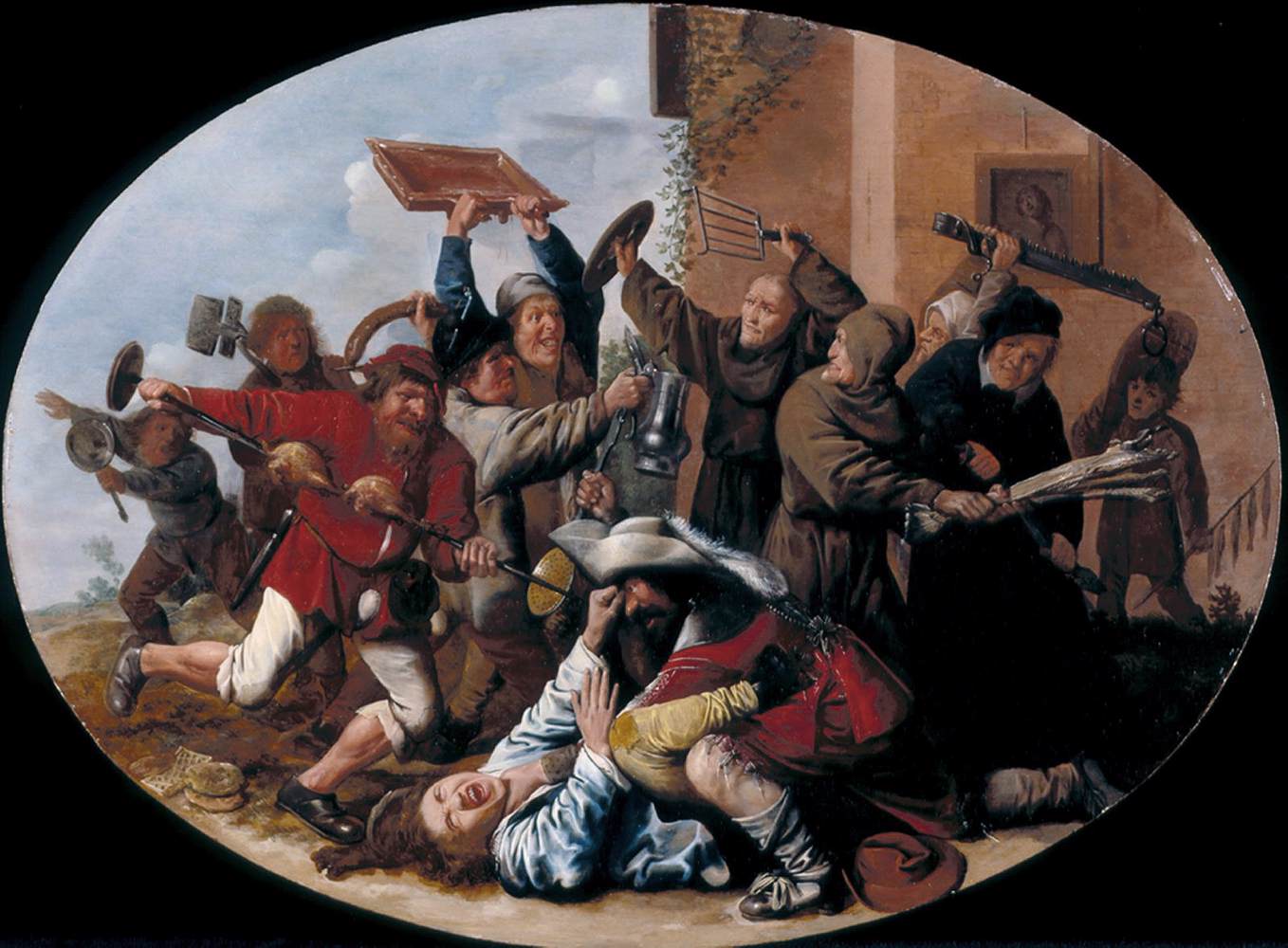Description
The painting "Battle between Carnival and Lent" by the Dutch artist Jan Miense Molenaer is a 17th-century masterpiece depicting the symbolic struggle between indulgence and abstinence. The painting is medium in size, with dimensions of 41 x 55 cm, and is currently in the Rijksmuseum in Amsterdam.
Molenaer's artistic style is characteristic of the Baroque era, with a focus on the realistic representation of the human figure and the dramatic use of light and shadow. In this work, Molenaer uses a technique called "claire-obscure," in which objects are illuminated from a specific angle to create a dramatic, three-dimensional effect.
The composition of the painting is impressive, with a multitude of characters fighting in the center of the work. The main figure, Carnaval, is represented as a fat, costumed man with a flower crown and a cane, while Cuaresma is a skeletal figure dressed in a dark cloak. Supporting characters include musicians, dancers, and people in costumes.
The use of color in the painting is vibrant and striking, with bright shades of red, yellow, and green contrasting with the darker tones in the background. The color palette used by Molenaer reflects the festive nature of Carnival and the solemnity of Lent.
The history of the painting is interesting as it is believed to have been painted during the Thirty Years' War in the 17th century. During this time, the Netherlands was in conflict with Spain and the work may have been a way of expressing the struggle between oppression and freedom.
As for little-known aspects, it is believed that the painting was commissioned by a wealthy Amsterdam family and used as decoration in their home. It has also been speculated that the work was used as religious propaganda to promote abstinence and penance during Lent.
In summary, the painting "Battle between Carnival and Lent" by Jan Miense Molenaer is an impressive work that stands out for its baroque style, its dramatic composition, its vibrant color palette and its interesting history.

